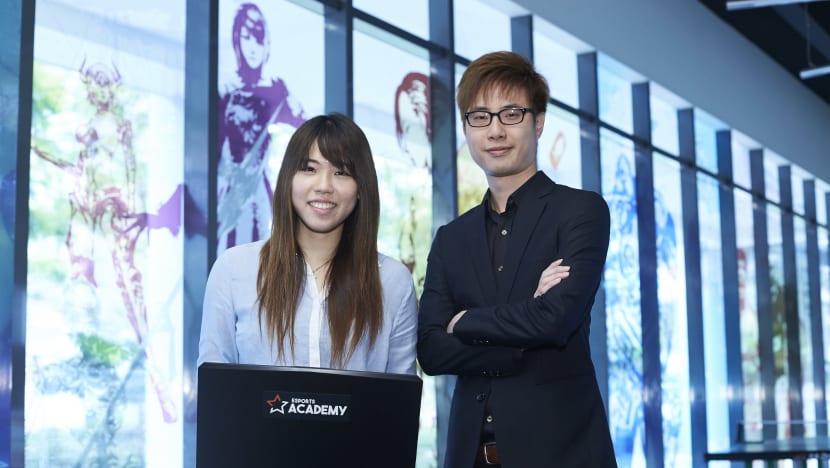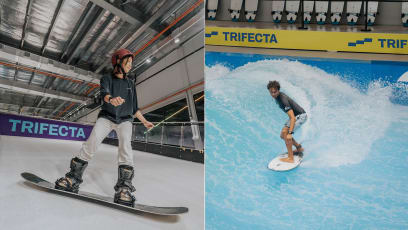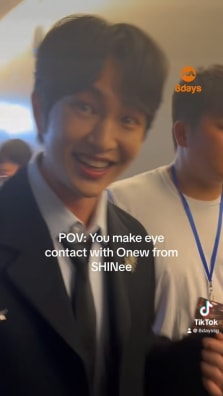Go To Gaming School. Maybe Even Go Professional And Become A Millionaire
These gamers tell you how. Yes, there is a school for people who go nuts for the likes of DOTA and League of Legends.

Ruth Lim and Check Ho have turned their passion for gaming into a career as trainers at the eSports Academy.
Even if those titles sound foreign to you, the fact that professional eSports tournaments offer prize money of up to US$20mil (S$27.9mil) may entice you to quit your job to go to school. But first things first: Ask yourself these questions to find out if you're cut out for it.
Q1: What on earth is eSports?
“In a nutshell, it’s competitive online gaming,” Ruth Lim (main pic), 24, a trainer at the Singapore Cybersports and Gaming Association (SCOGA) says. “Most people don’t know what eSports is, so our first job as trainers is to explain it.” SCOGA launched its eSports Acacdemy last month and offers two types of courses — a foundation category for avid gamers and a mastery category for those who are gunning to go pro. And why not? The top prize at international tournaments can amount to US$20mil. “We’ve done other boot camps in SCOGA’s 10-year history and we’ve seen results. We know [the training] works, and that there was a need to provide a more structured way for youths to grow themselves in eSports, so the academy naturally followed,” says co-founder Nicholas Khoo.
Q2: How is it even considered a sport?
How strenuous can it be to sit down and play games for hours on end, we hear you noobs asking. You may not know this, but eSports will be a medal event at the 2022 Asian Games in Hangzhou. Besides that, students in the academy’s mastery courses will not only have the help of coaches, but also that of sports psychologists and nutritionists. “This is to get them into shape,” says Dennis Ooi, SCOGA honorary secretary. “People don’t realise that anybody can take out their laptop or phone to play a game. But when millions of dollars are at stake, it’s at a high level where everything comes into play to get you to your peak performance. Precision, control and nutrition all come into play,” says Nicholas. Trainer Check Ho (main pic), 30, sums it up: “The number of hours that a sportsman and an eSports athlete need to put in to reach their peak is comparable. [eSports] is both physically and mentally taxing.”
Q3: Er, so people in eSports have to exercise?
“Absolutely. They definitely don’t have to train as hard as a runner, but they have to maintain a balanced lifestyle and good habits,” explains Dennis, who’s also a semi-professional gamer and a four-time gaming champion. Nicholas elaborates: “In some games, players have to control armies and you have to do as many as 600 actions per minute for extended periods of time. To keep that kind of stamina and precision requires fitness in all aspects. If you’re slower than your opponent in sending instructions to your army, then, sorry, you lose.”
Q4: I’m in my 30s. Gaming is for kiddos, right?
Wrong. “Our oldest student is in his 40s. The older people come for awareness and to see what it’s all about. Sometimes it’s not about gaming, but also online streaming [where gamers stream videos of them playing the game with accompanying commentary]. We also have classes in personal branding, communications, and how to negotiate your sponsorships,” says Dennis. After all, who doesn’t want to be the next YouTube gaming star like PewDiePie?
Q5: Aren’t gamers glued to the game, like, 24/7? I need to work and my kids need to study in (real) school to get scholarship leh.
Parents, fret not. The eSports Academy has gahmen backing — it’s supported by the National Youth Council. And no, it’s not about playing video games till you forget to eat, sleep or study. A foundation course comprises four classes on weekends, each spanning three to four hours. “It’s about quality, not quantity,” muses Ruth. Check concurs: “I’ve joined competitions since I was 18. Before that, I used to play 12 hours. After I joined a professional team, I still trained for 12 hours but it’s not just about gaming — there’s a lot of studying involved too.” Nicholas says: “Parents have concerns that their kids are spending too much time on gaming because they don’t see it going anywhere. But as the gaming sector grows, there are many job opportunities in the gaming industry and we highlight this to them. But it’s not like they should encourage kids to neglect their studies — in fact, we tell the kids that if they want to stay in the programme, we’ll have to see how well they’re doing in school. We’ve done talks in schools and we tell them that they need to have a back-up plan. Even if you go professional in eSports, like any other sport, you can only do it for so long.”
For more info, go to https://www.facebook.com/SingaporeCybersports.
Photo: Chee Yan


























